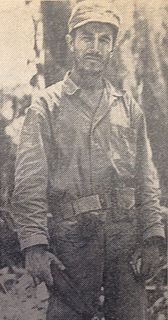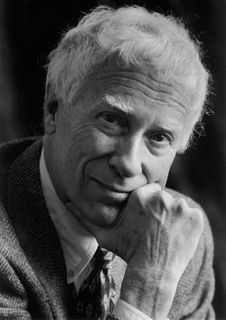A Quote by David Hume
Nothing endears so much a friend as sorrow for his death. The pleasure of his company has not so powerful an influence.
Related Quotes
Good friends find pleasure in one another's company. Let us know pleasure in the company of our best Friend, a Friend who can do everything for us, a friend who loves us beyond measure. Here in the Blessed Sacrament we can talk to him straight from the heart. We can open our souls to him, tell him what we need, beg him for powerful graces. We are perfectly free to approach the King of the universe with full confidence and without fear.
A man is known by the books he reads, by the company he keeps, by the praise he gives, by his dress, by his tastes, by his distastes, by the stories he tells, by his gait, by the notion of his eye, by the look of his house, of his chamber; for nothing on earth is solitary but every thing hath affinities infinite.
I -- I alone know how to mourn for him as he deserves.' But while we were still shaking hands, such a look of awful desolation came upon her face that I perceived she was one of those creatures that are not the playthings of Time. For her he had died only yesterday. And, by Jove! the impression was so powerful that for me, too, he seemed to have died only yesterday -- nay, this very minute. I saw her and him in the same instant of time -- his death and her sorrow -- I saw her sorrow in the very moment of his death. Do you understand? I saw them together -- I heard them together.
To no man does the earth mean so much as to the soldier. When he presses himself down upon her long and powerfully, when he buries his face and his limbs deep in her from the fear of death by shell-fire, then she is his only friend, his brother, his mother; he stifles his terror and his cries in her silence and her security; she shelters him and releases him for ten seconds to live, to run, ten seconds of life; receives him again and again and often forever.
God is not only the God of the sufferers but the God who suffers. ... It is said of God that no one can behold his face and live. I always thought this meant that no one could see his splendor and live. A friend said perhaps it meant that no one could see his sorrow and live. Or perhaps his sorrow is splendor. ... Instead of explaining our suffering God shares it.
His face set in grim determination, Richard slogged ahead, his fingers reaching up to touch the tooth under his shirt. Loneliness, deeper than he had never known, sagged his shoulders. All his friends were lost to him. He knew now that his life was not his own. It belonged to his duty, to his task. He was the Seeker. Nothing more. Nothing less. Not his own man, but a pawn to be used by others. A tool, same as his sword, to help others, that they might have the life he had only glimpsed for a twinkling. He was no different from the dark things in the boundary. A bringer of death.
Goods and possessions are no gain in his eyes. He stays far from wealth and honor. Long life is no ground for joy, nor early death for sorrow. Success is not for him to be pround of, failure is no shame. Had he all the world's power he would not hold it as his own. If he conquered everything he would not take it to himself. His glory is in knowing that all things come together in One and life and death are equal.








































